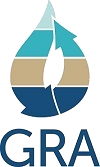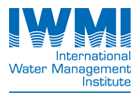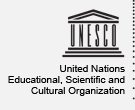Presentations 2016
Fisher, Andrew
Presentation Title
Nitrogen cycling and water quality improvement during managed aquifer recharge: Experiments using reactive barrier technology
Institution
University of California, Santa Cruz
Video
Video Not Available
Presentation
Profile Picture
Picture Not Available
Abstract
Aquifers throughout California are experiencing chronic overdraft. Accordingly, aquifer replenishment techniques such as managed aquifer recharge (MAR) are increasingly important for sustaining groundwater supply for agricultural, municipal, industrial, and environmental benefit. MAR can involve collecting excess surface water and infiltrating it into the subsurface where there are appropriate soil and aquifer conditions. Infiltrating water is subject to many microbial, chemical, and physical processes that affect water quality and aquifer health. As a greater variety of water sources—including hillslope runoff, recycled water, and excess channel flows—are used to supply MAR systems, there is a growing need to better understand how infiltration properties and processes affect water quality. Under some conditions, MAR has been shown to improve water quality by reducing nitrate (NO3-) concentrations via microbial denitrification in the shallow subsurface. Denitrification during MAR is spatially and temporally heterogeneous, and is often limited by the amount of available carbon and/or soil redox conditions. In an effort to better understand fundamental mechanisms and controls on water quality during infiltration, especially those involving the nitrogen cycle, we ran a series of field experiments, explicitly linking hydrologic conditions, subsurface nitrogen cycling, and microbial activity. Nitrate-rich water was continuously applied to experimental plots at measured rates during four two-week tests. Replicate plots were constructed with native soil and with a carbon-rich permeable reactive barrier (PRB) in the form of redwood chips. We collected surface and subsurface fluid samples daily and measured NO3-, NO2-, NH4+, and DOC for each sample. Our water chemistry results and high vertical infiltration rates (=1-2 m/day) illustrate that rapid infiltration can inhibit the formation of redox conditions favorable for net denitrification. However, comparison of experimental results for native soil and PRB plots shows that the PRB drives dynamic variations in fluid geochemistry and increases nitrogen cycling in the subsurface. Soil samples collected before and immediately after each experiment are being tested for total C/N and the presence of microbiological genes associated with denitrification. Initial microbiology results indicate that microbial populations shifted significantly in response to infiltration. In addition, nitrate isotopic work is underway in an effort to characterize nitrate reduction pathways and elucidate nitrogen cycling dynamics. These experiments provide a foundation for a more comprehensive examination of factors that impact changes to water quality during infiltration. Gaining a better understanding of these relationships is crucial to designing MAR systems that can achieve simultaneous water supply and water quality improvement goals, contributing to sustainable groundwater management.
|












